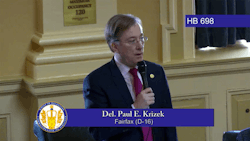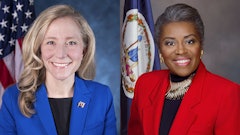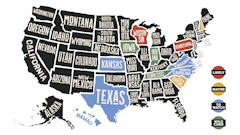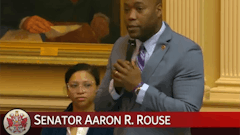
Virginia Democrats’ unwillingness to bring a professional sports arena to the commonwealth has likely imperiled the chances that Republican Gov. Glenn Youngkin signs an adult-use cannabis sales bill that was passed last month.
The sports arena, which Youngkin said would bring up to 30,000 jobs and provide the state $12 billion in economic impact, is one of the governor’s priorities, while launching a taxed and regulated commercial cannabis market is one of the legislative priorities for Democrats in control of both the Virginia House and Senate.
And with Virginia being one of eight states in the country where one political party controls the governorship and another party controls the legislature, a compromise appeared to be in the works until recently.
Notably, state lawmakers passed legislation Feb. 28 that paves a path for adults 21 and older to purchase up to 2.5 ounces of cannabis per visit at licensed dispensaries starting May 1, 2025. The General Assembly’s passage of this “sales” bill comes nearly three years after Virginia initially legalized adult-use cannabis possession and home cultivation (up to four plants) in July 2021.
RELATED: Virginia Bill to Launch Adult-Use Cannabis Sales Now in Governor’s Hands
While Youngkin has shown no interest in cannabis reform since taking office in 2022, closed-door negotiations involving the governor’s sports arena and Democratic priorities such as the cannabis sales bill were being discussed as recently as March 6, the Virginia Mercury reported.
But on March 7, those talks appeared to shatter when Senate Democrats unveiled a budget proposal that did not include Youngkin’s proposed $2 billion public-private partnership to create a 9 million-square-foot entertainment district in the city of Alexandria at Potomac Yard. The district was to feature an arena for both the Washington Capitals (hockey) and Washington Wizards (basketball).
Youngkin said during a March 7 news conference on Capitol grounds in Richmond that the Senate is making a “colossal mistake” in blocking an arena deal that included “no upfront cash” and “no new taxes.” However, a public subsidy to the tune of $1.35 billion in state and local funds would be needed to move forward on the project, The Washington Post reported.
Moreover, the Virginia Senate would need to approve any state funding for the project, including for the creation of a sports and entertainment authority.
“The way the Senate has handled this opportunity, I fear, damages Virginia’s business environment,” Youngkin said. “It’s a clear signal that opportunities to welcome new investment and jobs, even ones of historic magnitude, will not be evaluated on their merit, but instead will be viewed through the lens of partisan, parochial interests.”
Youngkin claimed that the entertainment project had bipartisan support, and had a bill reached the Senate floor on the proposal, it would have passed, he said.
The cannabis “sales” bill that passed last month, meanwhile, was largely partisan legislation that drew just one Republican from the House and one Republican from the Senate to support it, meaning it does not have a veto-proof majority.
Without the Senate’s support for the arena deal, a reporter asked Youngkin about the chances he’ll sign the cannabis bill. While the governor said he’ll “evaluate” each of the thousands of bills he anticipates the General Assembly sending him, he reaffirmed his stance on reform.
“I’ve been clear: I don’t have any interest in the cannabis legislation. I’ve expressed that to people over and over again,” he said. “And at the end of the day here, we are talking about an opportunity, truly an opportunity to bring 30,000 jobs, $12 billion of economic impact in the commonwealth of Virginia in the fastest growing, most dynamic area, which is sports and entertainment. And bluntly, you want to talk about putting a cannabis shop on every corner. I don’t quite get it, honestly.”
According to the Virginia Constitution, the governor has seven days to act on a bill once it’s officially presented to him or her. During that period, the governor can sign, veto or recommend amendments. However, when a bill arrives on the governor’s desk with fewer than seven days remaining in the regular legislative session, he or she has 30 days from the date of adjournment to consider the bill.
This year, the General Assembly is scheduled to adjourn March 9.
If Youngkin does not act within the allotted timeframe, the cannabis “sales” bill would become law without his signature.
























